Popular
How to Build the Perfect Oral Care Routine in 2025
Jul 30
Why Your Gums Bleed and How to Fix It Fast in 2025
Jul 30
Top 5 Oral Care Mistakes and How BrushO Fixes Them
Jul 29
What Makes a Toothbrush “Smart”?
Jul 22
BrushO Smart Toothbrush: Gentle, Powerful, Travel-Friendly
Jul 19
BrushO: The Future of Smart Oral Care—Redefining the Way You Brush
Jul 17
Back
How to Store an Electric Toothbrush HygienicallySep 3
Sep 3
How to store an electric toothbrush hygienically is a question often overlooked. Many users leave their toothbrush in a damp cup or next to the sink—conditions that allow bacteria and mold to thrive. This article explains dentist-recommended toothbrush storage practices, shows common mistakes to avoid, and highlights how BrushO’s design (waterproof body, replaceable heads, travel case) makes hygienic storage easier at home and on the go.
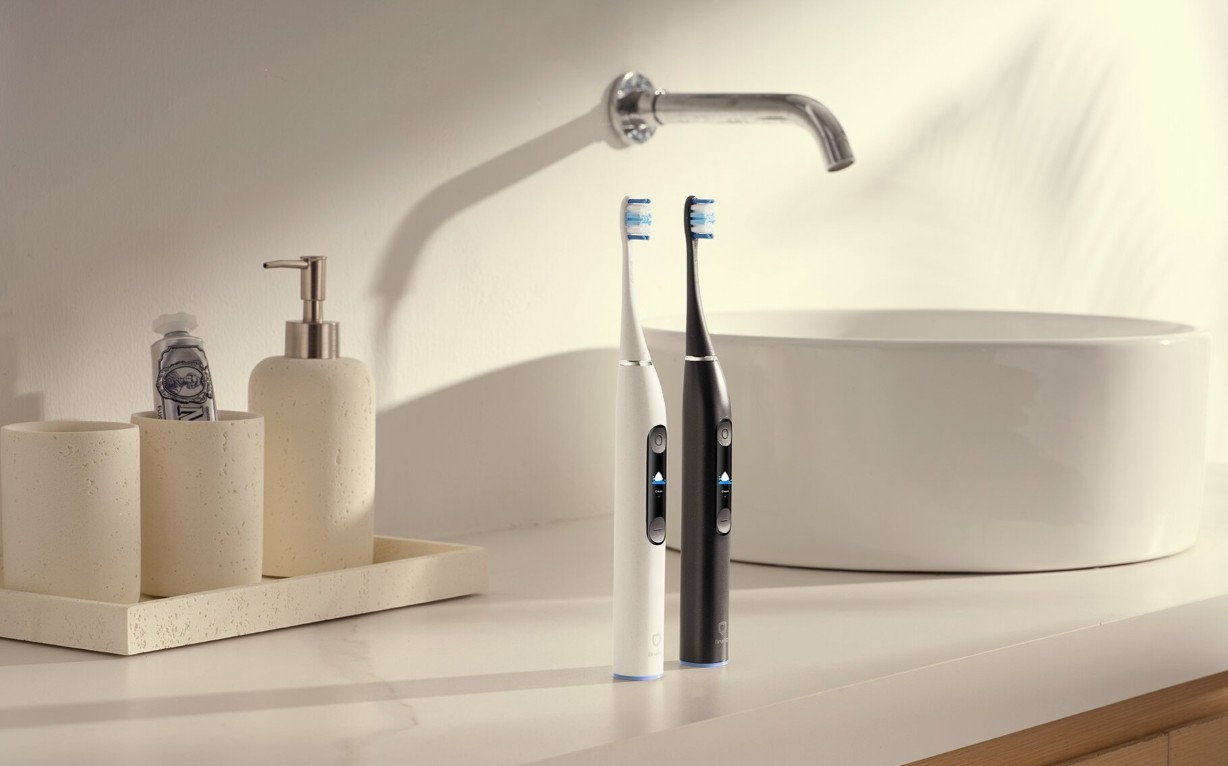
Why Hygienic Storage Matters 🦷
Your toothbrush comes into contact with millions of bacteria daily. Without proper storage, these germs can multiply and compromise your oral health. According to the American Dental Association (ADA), correct toothbrush storage prevents cross-contamination, prolongs brush head life, and reduces risks of gum disease or oral infections.
Common Mistakes to Avoid ❌
- Keeping the brush in a closed, damp case → creates a breeding ground for bacteria.
- Storing near the toilet → every flush can spray microscopic droplets up to 6 feet.
- Laying the brush flat on the sink → traps moisture and encourages mold.
- Never replacing brush heads → worn-out bristles collect more bacteria and clean less effectively.
Best Practices for Storing Your Electric Toothbrush
1. Upright & Ventilated 🌬️
Always store your toothbrush standing upright in a holder that allows airflow. This helps bristles dry quickly and reduces bacterial growth.
2. Separate from Others 🚫
If multiple toothbrushes are in the same holder, ensure bristles don’t touch. This prevents cross-contamination between family members.
3. Cover Smartly 🛡️
Use a breathable cover for travel, not airtight plastic that traps moisture. For home use, open-air drying is preferable.
4. Keep Away from Toilets 🚽
Place toothbrushes at least 6 feet away from toilets and sinks to avoid aerosol exposure.
5. Replace Brush Heads Regularly 🔄
Dentists recommend replacing brush heads every 3 months, or sooner if bristles fray.
Travel & Office Scenarios ✈️💼
- At the office: Store in a ventilated travel case and rinse thoroughly after each use.
- While traveling: Use BrushO’s protective travel case, and dry the brush before packing.
- Shared bathrooms: Keep each toothbrush in a separate holder with proper distance.
How BrushO Supports Hygienic Storage 💡
The BrushO Smart Electric Toothbrush is designed with hygiene in mind:
- IPX7 waterproof rating: Safe to rinse under water and easy to clean.
- Replaceable brush heads: Each kit includes three heads, making rotation simple.
- Travel-friendly storage case: Keeps brushes safe and ventilated while on the move.
- Smart reminders: App notifications help track when to replace brush heads.
FAQ: Toothbrush Storage
Q1: Should I keep my toothbrush in a drawer?
No, enclosed drawers trap moisture. Open-air storage is healthier.
Q2: Is UV sanitizing worth it?
UV sanitizers can help, but proper drying and replacement are usually enough.
Q3: How often should I disinfect my brush handle?
Wipe weekly with a damp cloth or alcohol pad, especially if multiple people share the bathroom.
Storing your electric toothbrush hygienically isn’t complicated, but it makes a huge difference for oral health. By keeping it upright, ventilated, and away from bacteria sources, you protect both your teeth and your brush. With features like waterproof design, replaceable heads, and a dedicated travel case, BrushO ensures your brushing routine stays clean and safe—wherever you are.
👉 Upgrade your brushing experience with BrushO: https://www.brusho.com
📱 Learn more: How to Charge an Electric Toothbrush Correctly
BrushO Sponsors SV Dental Career Seminar in Taipei
Sep 4
Morning vs Night Brushing: Best for Your Teeth
Sep 2
Popular
How to Build the Perfect Oral Care Routine in 2025
Jul 30
Why Your Gums Bleed and How to Fix It Fast in 2025
Jul 30
Top 5 Oral Care Mistakes and How BrushO Fixes Them
Jul 29
What Makes a Toothbrush “Smart”?
Jul 22
BrushO Smart Toothbrush: Gentle, Powerful, Travel-Friendly
Jul 19
BrushO: The Future of Smart Oral Care—Redefining the Way You Brush
Jul 17
Recent Posts
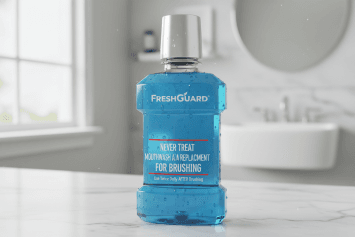
Never Treat Mouthwash as a Replacement for Brushing
Mouthwash may freshen your breath, but it can’t replace brushing. Learn why brushing remains essential for removing plaque and protecting gum health—even with daily mouthwash use.
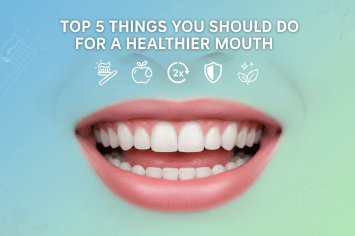
Top 5 Things You SHOULD Do for a Healthier Mouth
Discover the top 5 science-backed habits that promote a healthier mouth—better brushing, smart flossing, nutrition tips, hydration, and regular dental visits. Boost your oral hygiene and full-body health with consistent care.
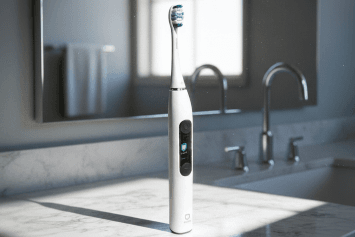
Smart Brushing Habits to Help You Age Gracefully
Discover smart brushing habits that support healthy aging. Learn how proper brushing techniques, timing, and technology like AI toothbrushes help protect your gums, enamel, and overall health as you age.

Do Tongue Scrapers Really Work?
Do tongue scrapers actually work? Discover the science behind tongue cleaning, how it improves breath, reduces bacteria, and whether it’s worth adding to your daily oral hygiene routine.
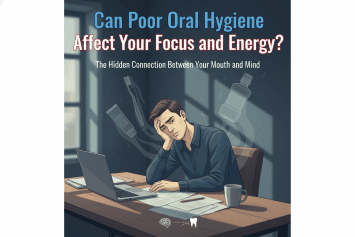
Can Poor Oral Hygiene Affect Your Focus and Energy?
Can poor oral health drain your focus and energy? Discover the surprising science connecting dental hygiene to brain fog, fatigue, and productivity. Backed by expert research and smart brushing strategies.

Oral Care Tips for Coffee and Tea Lovers
Love coffee or tea but worried about stains and enamel erosion? Learn science-backed oral care tips to protect your teeth while still enjoying your favorite drinks. Perfect for BrushO smart toothbrush users.

How to Safely Whiten Teeth Without Damaging Enamel
Want a brighter smile without harming your enamel? Discover dentist-approved teeth whitening methods that are safe, effective, and compatible with smart toothbrushes like BrushO.

Should You Use Warm or Cold Water When Brushing?
Wondering whether to use warm or cold water when brushing your teeth? Discover the pros and cons of each, backed by dental science—and how smart toothbrushes like BrushO adapt to your oral health needs.
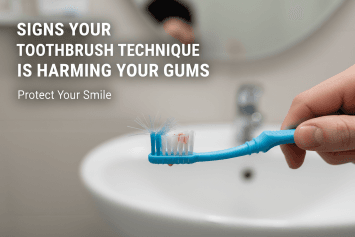
Signs Your Toothbrush Technique Is Harming Your Gums
Are you brushing your teeth the wrong way? Learn the surprising signs your toothbrush technique may be harming your gums—and how smart toothbrushes like BrushO can help you brush safer and smarter.

Is Your Smile Suffering from Sleep Bruxism?
Sleep bruxism—nighttime teeth grinding—can silently damage your smile. Learn how to recognize symptoms, prevent long-term oral harm, and how smart toothbrushes like BrushO can support bruxism management.
